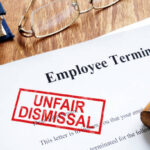The primary role of an executor is to handle and distribute the estate of a deceased person to the named beneficiaries. However, for reasons best known to them, there are times when an executor will fail to carry out their duties. And so, if you are a person of interest in the estate, and you start to notice that the executor is not performing their duties, then there are legal steps you can take to resolve the issue.
In this blog post, we will briefly look at the roles of an executor/administrator, and what to do when they fail to carry out their duties.
Who is an Executor, and What are Their Roles?
Simply put, an executor is a legal entity named in the last will of a deceased person to help them sort out their estate after they pass on. It should be noted that even though they perform the same function, an executor and an administrator are different. An estate owner usually appoints an executor to help them manage their assets. In contrast, an administrator, on the other hand, often gets appointed by the court of law, provided that the deceased did not leave a Will behind.
Besides managing and distributing the assets to the beneficiaries listed in the will, an executor also performs other important roles.
- Represent the estate in court: In some cases, an executor may be required to appear in a court of law on behalf of the estate. Note that this is not always common, but if the situation demands it, an executor has no other option but to represent the estate.
- File a copy of the will with the local probate court: One of the important roles of an executor is to file the will with the probate court. By doing that, the executor can determine and also distribute the properties listed in the will to the beneficiaries.
- Notify banks and credit card companies about the death of an estate owner: Another role that an executor performs is to notify the deceased banks and credit card companies about the death of their client.
- Set up a bank account for the estate: Another important role of an executor is to set up a bank account that will hold the funds received after an estate owner’s death.
- Pay the estate’s debts and taxes: An executor will also be required to pay the estate debts and file income tax returns. It is, however, important to note that the size of the estate will ultimately determine what type of tax will be paid. If the estate is large, the executor may be required to pay for both state and federal estate taxes.
What to do if an Executor Fails to Carry Out The Administration?
When an executor fails to fulfill their duties and responsibilities, it can cause delays, disputes, and complications in the probate process. So, if you are a person of interest in an estate, and you notice that your executor, for whatever reason, has failed to administer the estate, there are various steps you can take. We shall briefly look at some of them.
-
Citation to Accept or Refuse a Grant
The first step to take to address the issue of an underperforming executor is to issue a citation to accept or refuse a grant. This type of citation is a kind of legal document that will issue a formal notice to the executor and then challenge the executor to appear before the court. On appearing before the court, the executor will then be asked to either accept or renounce their appointment as the executor. However, if, for whatever reason, the executor could not appear in court at the specified date, the court may consider their renunciation and move forward with alternative measures to administer the estate effectively.
One of the main advantages of this citation is that it serves as a reminder for the executor to execute their duties before the alternative measure becomes a real possibility.
-
Citation to Propound a Will
Unlike a citation to accept or refuse a grant, a citation to propound a Will seeks to bring the Will before the court for validation and to determine its legality and enforceability. It will typically require the erring executor to provide reasons for their failure to fulfill their duties adequately. citation to propound a Will provides an opportunity for unsatisfied estate beneficiaries to present evidence or arguments challenging the executor’s performance and seeking alternative solutions if necessary.
-
Citation to Take Probate
Citation to take probate comes into play when an executor fails to initiate the probate process or administer the estate as it’s stated in the deceased last will. This citation enables the disgruntled estate beneficiaries to file a citation to take probate. This legal action enables the court to review all the evidence and arguments presented. If it finds the underperforming executor unfit, the court will remove such an individual and appoint a suitable replacement to fulfill the duties and responsibilities effectively.
Contact us at Saanichton Law
Dealing with an executor who is not taking the appropriate steps to administer an estate can be a frustrating and challenging experience. However, by understanding your rights as a beneficiary and taking the necessary legal actions, you can help ensure the proper administration of the estate.
If you find yourself in this situation and need professional legal assistance, consider contacting us at Saanichton Law Group. Our experienced team of attorneys can provide expert guidance and support to help you navigate the complexities of estate administration and protect your interests. Contact Saanichton Law Group today for a consultation and take the first step towards resolving your estate concerns.




